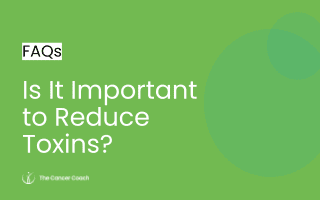How Your Lungs Will Improve
The body desires a state of balance at all times, which is the reason it will battle infection and heal injuries which are sustained to it. When cigarette smoke departs from your system, the lungs will begin healing themselves. However, although their response is immediate, the progress itself is largely incremental.
24 hours after you quit smoking, the blood pressure within your body will fall. The same is true of the heart rate, as the levels of carbon monoxide will fall to a natural state. The longer you go without smoking, the greater the benefits your lungs will gain. After thirty days, they will develop greater efficiency, which includes the ability to manage oxygen intake while improving blood circulation.
REQUEST A FREE CANCER CONSULTATION: Pre-consultation call and lifestyle analysis, 20-minutes with a specialist lifestyle and wellness coach, Outline of a tailored Health Plan, Replay your consultation with our free mobile app. Request a Free Cancer Consultation Here.
Your Risk Of Catching Various Cancers Will Decline Dramatically
There are a number of cancers which are associated with cigarette smoking, which is why doctors urge their patients to cease the habit. While lung cancer is the most well-known, there are others including cancer of the throat, bladder, mouth, breasts, pancreas, bladder and kidney.
Cigarettes are known to contain more than four thousand chemicals which are poisonous to the human body. Just a few of these include arsenic, formaldehyde, cyanide and benzene. In fact, if it were not for the body’s capacity to heal itself, smoking a cigarette would almost certainly result in instant death. The key defense is the body’s cellular cycle.
Once you quit smoking the oxygen levels within your body will become normal. The likelihood of experiencing a heart attack will also fall, since ceasing smoking will purge nicotine from your system and the senses of smell and taste will return.
Your Bronchial Tubes Will Strengthen
Once you stop smoking, your bronchial tubes will improve in as little as seventy two hours. They will enter a state of relaxation and you will notice an increase in your energy level. Additionally, the capacity of your lungs will become greater.
Aside from blood circulation, which will peak at around ten weeks, after you cease smoking for nine months your lung capacity overall will increase at roughly ten percent. Many long term smokers develop breathing issues, but by stopping this bad habit the cilia will regenerate, which means that the lungs will be detoxified and their likelihood of becoming infected will decrease precipitously.
Women Will Have More Successful Pregnancies
The dangers of smoking among pregnant women are well documented. Those who stop prior to their fourth month will dramatically decrease the chances of low birth weight or still birth. Much of this success is related to the lungs and how they respond to smoking cessation.
A baby’s health and survival depends on the health of its mother. An expecting mother that stops smoking will experience improved blood pressure and circulation, which means that it will be easier for her heart to pump blood to the extremities and organs that need it. After a day of not smoking both pregnant women and people in general will notice that they can exhale and inhale with greater depth.
You Will Briefly Experience Coughing After A Week
Many former smokers have reported that after ceasing smoking for about a week they developed a cough. This is a good sign, as it means that the lungs are removing toxins from your system which have collected over time. You can assist them by increasing your intake of fluids which will allow the body to eradicate the toxins faster while healing.
A lot of smokers are physically inactive, but those who attempt exercise while using cigarettes will often notice that they quickly lose their breath. If you wait about three weeks after quitting smoking, you will notice that you’ll be able to engage in physical exercise without breath shortness, and the reason for this is because your body will regenerate, allowing the lungs to function to a higher degree. This will allow you to breathe more efficiently and your heart will be able to circulate blood better.
How Smoking Affects Mucus
When you smoke, the tar from the cigarette will attach to the miniature hair called the cilia which lines the passages of the throat and nasal. The purpose of the cilia is pushing away dirty mucus which builds up into the nose or mouth, where it can be removed. However, smoking will cause the cilia to become clogged, which means that the mucus will build up, and the body will attempt to remove it forcibly through a phenomenon which is called smoker’s cough.
However, once you stop smoking the cilia will experience a number of benefits. They will return to a normal state where they will able to push away mucus normally, which means that your chances of developing a lung infection is reduced. You will also cough less, and after a year of not smoking the cilia hairs will regenerate, becoming fully functional and indistinguishable from someone who has never smoked. Smoke related coughing will be gone completely and breath shortness will no longer be experienced. In fact, those who stop smoking for one year or longer will cut their risk of having a heart attack at about fifty percent.



